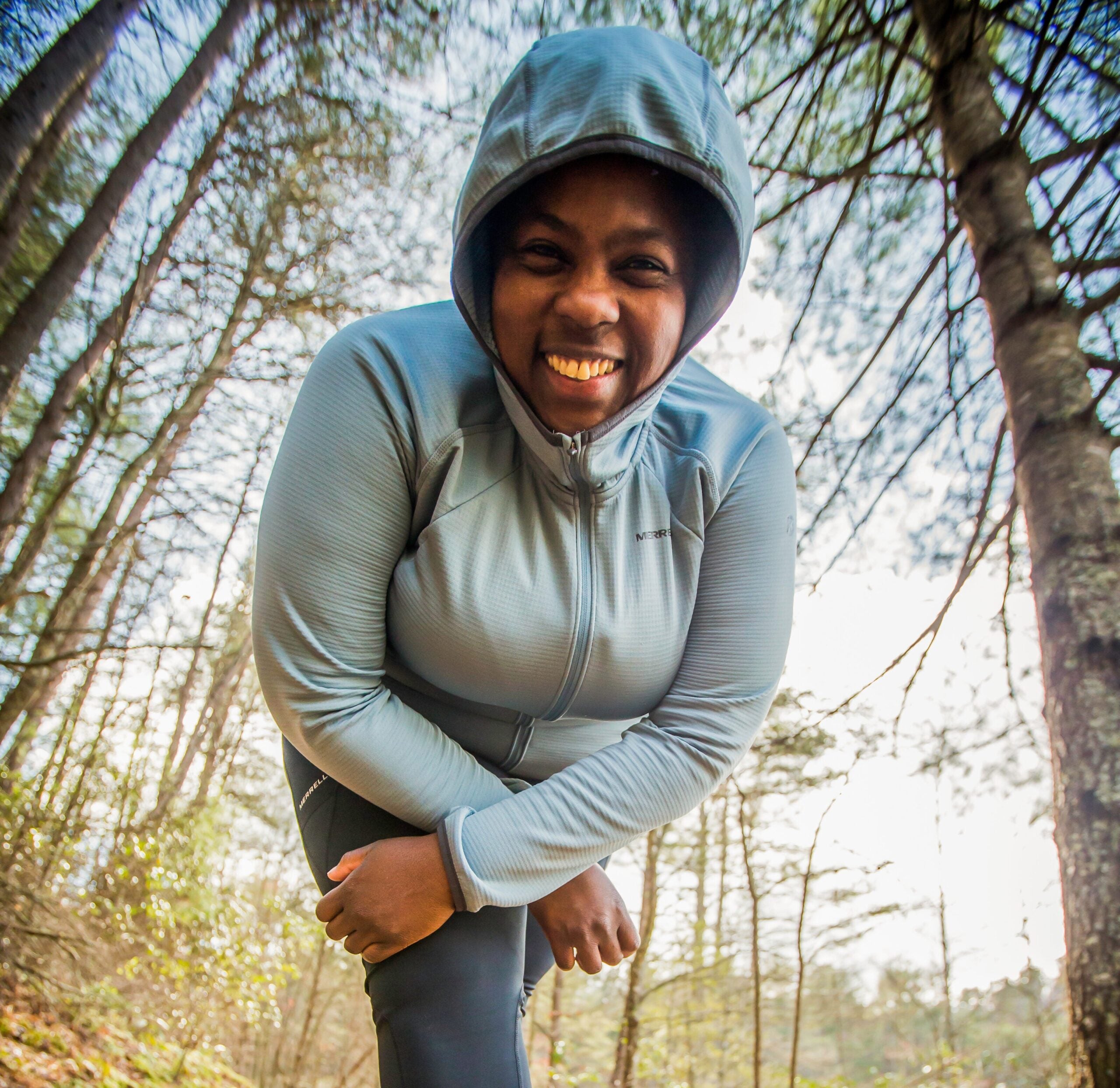Bronx native Mirna Valerio first laced up running shoes for a 5K—and just kept going. She now has almost a dozen 50K trail ultramarathons under her belt and is well-known in the ultra world and on social media as The Mirnavator and author of the memoir A Beautiful Work in Progress. Sponsored by Swiftwick Socks and a partner of Merrell and Skirt Sports, Valerio also appeared in an REI Force of Nature short documentary last fall. Recently, she left her job teaching Spanish, running a high school diversity program, and coaching cross-country to focus on running, writing, and speaking, all to continue spreading her message of body positivity and health, no matter what your size.
How did you get into ultrarunning?
[In preparation for] my first road marathon, the Marine Corps Marathon in 2011, I’d been running trail races just to beef up my training. Then I was encouraged to sign up for my first trail marathon, the New Jersey Ultra Festival, in 2012, and I loved it. As soon as I finished, the race director put the medal over my head and said, “I’ll see you next year for the 50K.” A year later, I did it. I was completely sold. I got to spend lots of hours out in nature, and it was way easier on my body than road running. I’ve done 11 ultras and ten marathons.
A lot of your work deals with what it’s like to not look like a stereotypical runner. Do you consider yourself a role model for others who don’t have the “runner look?”
Number one, I run for myself and my own fitness. It’s a bonus that I get to show people that running is for every body. Every day I get messages about how seeing me has inspired someone to run a 5K or 10K or sign up for their first marathon. It was surprising that so many people felt so hampered in their own journeys by the stories they would tell themselves: about how they don’t belong outside, or they were too big or too old to run. It’s been really cool to see people transform their thinking about who’s a runner and who isn’t.
Your Force of Nature video featured a nasty, fat-shaming email you received. How much positive versus negative feedback do you generally hear?
The feedback I get personally is overwhelmingly positive. But I know that people are talking about me over social media, and some of that can be quite negative. I try to stay away from that. I do get messages in my inbox saying, “I love what you’re doing, but I don’t understand why you’re not thinner.” Those I delete. But if it’s something that accuses me of cheating or lying, I will address it directly.
What did your students think about your prominence as a runner and writer?
They started calling me “Hollywood.” They were really excited for me, and they loved it when cameras were in the classroom. Just a couple of weeks before school ended, I had one student say to me, “I think you need to leave this place, because your star is rising and you need to follow it.” I hear from other kids and teenagers, too: “Thank you for showing us that there’s not just one kind of body that can run.” Or, “I’m the biggest or slowest person on my team, but it doesn’t matter because I just love to run.” Some cross-country coaches have shown the REI video to their teams to push running as a lifestyle.
You’re also a classically trained opera singer and pianist. How does your running inform your art, or vice versa?
Just the other day I was training in Jackson, Wyoming, and I had a speaking engagement in Portland, Oregon. I was having a lot of trouble—I had written a speech, but I didn’t think it was good enough. So I went on this run, and everything became clear. That’s what being outdoors does for me; it inspires creativity. This was on a routine training run, and I didn’t expect anything like that. But I’ve been able to do a lot of things musically, and figure a lot of things out, by just having the mental space and engaging my whole self [on a run]. There’s definitely a connection between the will and need to create and being outdoors.
Congrats, Mirna, for finishing the 120-mile, six-day TransRockies race!


